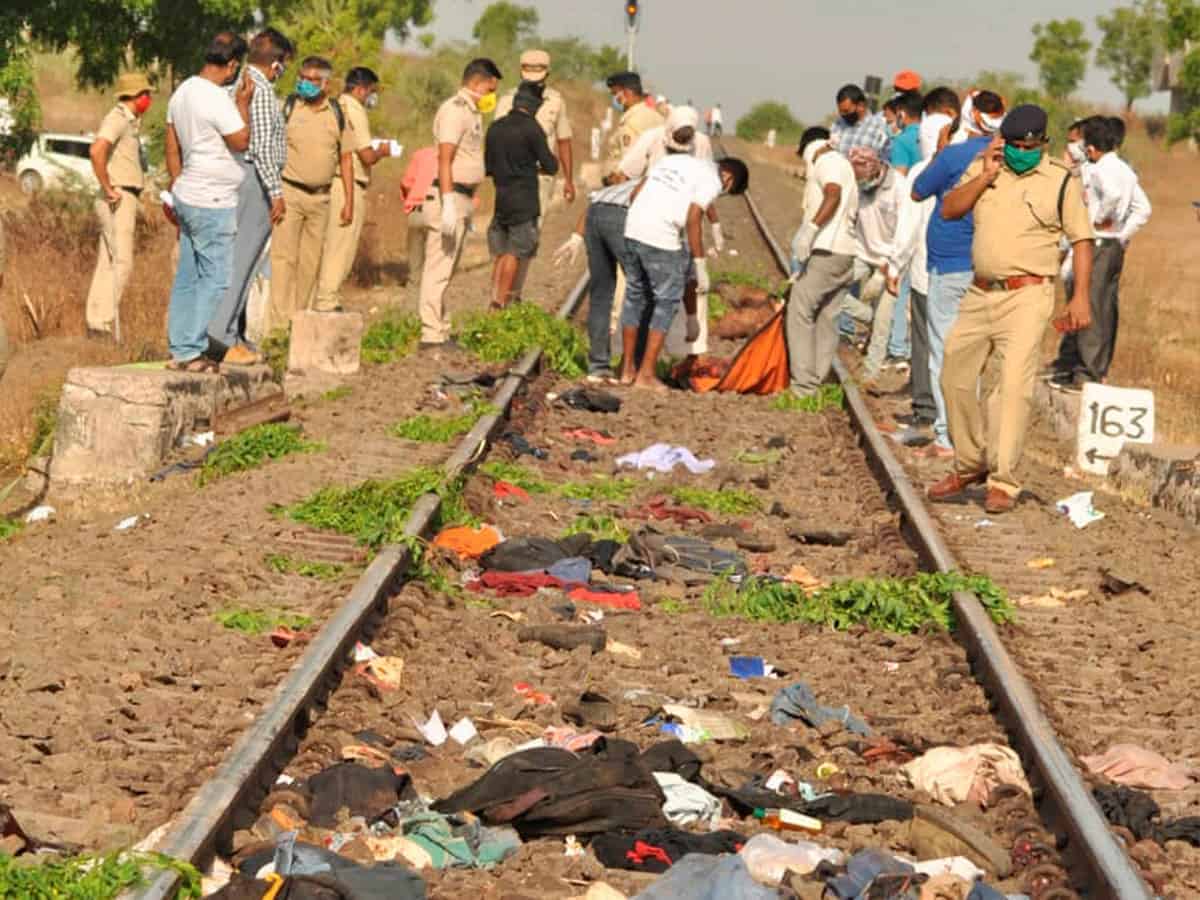New Delhi: The lockdown which started almost fifty-five days back has reached its fourth phase with almost 2000 afflictions and 4000 deaths.
Is the number of coronavirus deaths almost the same as of the casualties of the migrant workers? Perhaps more.
Serpentine lines of jobless migrant workers who are trying to reach their native lands are seen in on road. With no mode of transport available many of them are seen walking under the scorching sun endlessly. Some of them are covering several hundred kilometers with no food, no water and hardly anything to fall back during the journey.

Why are these migrant workers leaving the cities with so much of risk? Because the cities to which they had come to test their luck, did not wake up to help them in their hour of dire need.
The other, more popular answer to it is, that these migrant workers are usually daily wage workers like plumber, carpenter, painter, mason and labour who are all left with no work resulting in no income to sustain their lives. Due to which they all prefer to go back to their villages to live with their families.
Moreover, most of them working in hotels and restaurants had been removed from their jobs and have evaculated from their rented rooms by the owners. Due to all this they have no options left but to go back home.
Even worse, is the fear they are facing as the pandemic and lockdown seems to be never ending. Many of these migrant workers believe, “GaoN mai ghar walo ke beech bhuke jeena aur marna behtar hai, shehar mai road pay jeene se.” (Its better to starve and then die with our family than on the roads of an unknown city.”
From road and rail accidents to starvation, denial of medical care, police brutality, exhaustion and suicides, there have been hundreds of reported non coronavirus deaths right from the first of lockdown.

On Friday, 16 migrant workers were crushed to death by a goods train when they were attempting to make their way to Aurangabad railway station with the hope of catching a train to their homes in Madhya Pradesh. They were walking along the railway track to avoid being thrashed by the police on the roads and with the knowledge that trains aren’t running.
After walking for several hours, the workers were exhausted. They sat down to rest and fell asleep. An oncoming goods train ran over them.
The migrants were working with a private steel company in Jalna in Maharashtra and had not been paid since the first lockdown began on March 24. Given the desperate situation and not knowing when they could work again, they wanted to go back home to be with their families and decided to walk in the hope of finding a train.
In another incident on Saturday night, at least five migrant labourers were killed and 13 others injured when a truck in which they were travelling overturned in Madhya Pradesh’s Narsinghpur district. The incident took place in Patha village in Narsinghpur. Around 18 labourers were travelling in a truck carrying mangoes from Hyderabad to Agra in Uttar Pradesh.
In fact, according to the reports till Saturday, 378 people had died since the lockdown was imposed due to reasons other than the disease. Of them, 69 people died in rail or road accidents while walking to their homes with no mode of transport.
A large number of people have died due to reasons such as starvation, denial of medical care, police brutality, exhaustion, suicides – all consequence of the lockdown. The database is updated every day and is available here.
The death of almost 16 migrant workers in a single incident in Aurangabad occurred early this month. On March 28, a few days after the lockdown, eight migrants returning home were killed in a road accident in Karnataka’s Raichur.
The largest numbers of reported non-coronavirus deaths (83) so far have been due to suicides for reasons such as fear of infection, alcohol withdrawal effects and due to loss of jobs. A large number of people have also died due to starvation, denial of medical care and exhaustion while walking home or queuing for ration or money.
An 80-year-old man who lived near a bus stop in Tamil Nadu and was dependent on travelers for food died after the lockdown was imposed as there was no to give him money for sustenance. A 12-year-old girl died due to exhaustion after walking 100 km with her parents who had left for home after the lockdown was extended for the first time.
Another cause for death has been the denial of treatment by hospitals and doctors due to the fear of COVID-19. A report earlier this month said that a pregnant woman in Telangana was turned away by six hospitals. She was tested for COVID-19 and was admitted to a government maternity hospital only after the results came back negative. Due to the delay, the baby was born with complications and died. A day later, the woman also died.
In another similar incident, a woman pregnant with twins died in Jammu and Kashmir’s Anantnag district as she was denied timely medical care. She was a resident of an area which had been categorised as a ‘Red Zone’ by the local administration and the doctors were hesitant to treat her.
Nihad Amani

